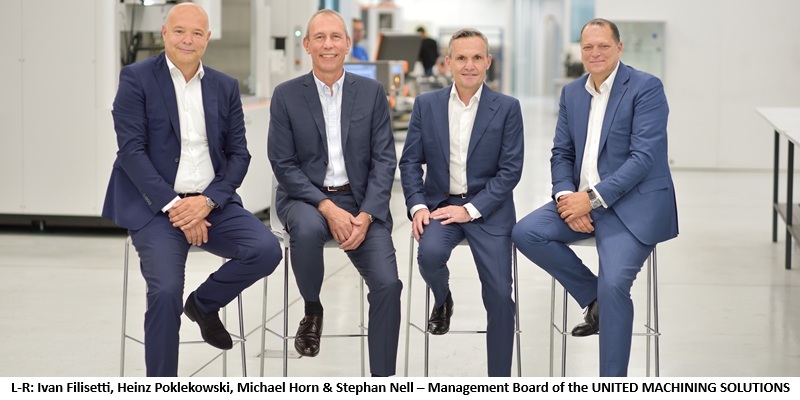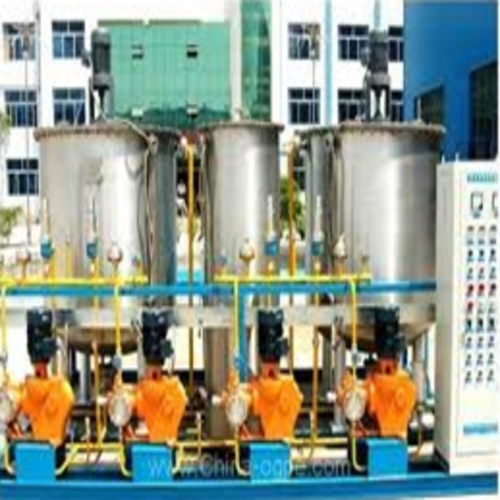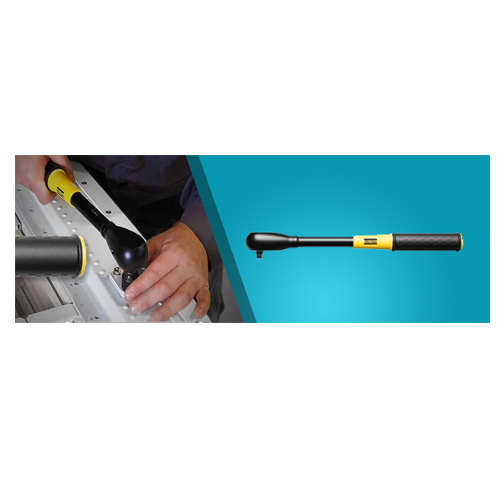Schedule a Call Back
Indian Railways: Back On Track
 Technical Articles
Technical Articles- Feb 02,16
- HUNED CONTRACTOR
The announcement of 100 per cent FDI in Indian Railways has opened up new vistas for the Indian railway sector to modernize its assets, improve the network and finally look at the possibility of revenue growth.

While most times Indian Railways makes headlines only for wrong reasons such as mishaps, freight losses, fare hikes, inefficient operations, etc., of late it has been attracting attention for the investments being pumped into it to help it achieve a turnaround. The latest in the series is that global giants GE and Alstom are likely to be awarded contracts for setting up of multi-crore diesel and electric locomotive factories in Marhora and Madhepura in Bihar, marking the first major FDI in rail projects. This is being dubbed as the first big ticket project in the railway sector under the ‘Make in India’ initiative. The projects involve manufacturing 1,000 diesel locomotives and 800 electric locomotives over the next 11 years and are worth about Rs 40,000 crore.
US multinational GE, which has emerged as the lowest bidder for the Rs 1,200 crore Marhora diesel locomotive factory, is expected to manufacture the 1,000 locomotives over 10 years. While 100 will be imported, the rest will be manufactured at Marhora. French major Alstom, the lowest bidder for the Rs 1,000 crore Madhepura electric locomotive factory, will manufacture 800 high power electric locomotives in the next 11 years. It will manufacture 12,000 HP electric locomotives to be used for heavy haulage. According to the contract, while five diesel locomotives will be imported, the rest 795 will be manufactured at Madhepura as part of the project. Maintenance of the locomotives will also be the responsibility of the company, for which it will set up two maintenance sheds at Nagpur and Sharanpur.

Of the 1,000 diesel locomotives to be manufactured by GE, 700 will be of 4,500 horse power (HP) and 300 of 6,000 HP. With the government allowing 100 per cent FDI in railways, the setting up of the two locomotive plants in joint venture mode is crucial for the public transporter in order to boost its infrastructure. The two projects are among the top eight infrastructure projects being monitored by the Prime Minster’s Office. Indian Railways will have 26 per cent equity while the global players will have 74 per cent equity in each of the plants. “India is a growth engine for Asia, and we see huge potential for the country in the manufacturing space. Infrastructure is a key driver of India’s growth. We are keen to invest much more in India and in projects to boost its infrastructure,” said Jeff Immelt, CEO, GE, in a statement.
Indian manufacturers also echo this positive sentiment and growing confidence in Indian Railways. For instance, at the recently held International Railway Equipment Exhibition, Escorts Railway Products (ERP), part of the Escorts Group, made a big splash with its products and the announcement of its future growth plans. Since 1962, the company has remained as one of the reliable partners of Indian Railways throughout its journey of modernisation. “We are a market leader across all our product offerings as we develop newer products with better technologies through our own in-house research and design facility as well as through collaboration with leading international technology majors of the railway industry. We are now on the verge of venturing into new domains of railway products through global partnerships, contract manufacturing, and buy-back options,” informs the company’s CEO, Dipankar Ghosh.
ERP operates in three segments: brake systems, couplers and suspension systems. “That apart, we are also a major producer of composite brake blocks and brake pads, different types of rubber to metal bonded products and UIC vestibules to cater to different rolling stock market segments viz. passenger coach (both LHB and conventional), freight wagon, locomotives and EMU and DMU (electric multiple unit and diesel multiple unit). LHB (Linke Hofmann Busch) coaches are the passenger compartments of Indian Railways that have been developed by Linke-Hofmann-Busch of Germany We are now also entering the metro segment with our foreign collaborators for the supply of different sub-systems like automatic door systems, shock absorbers, air springs and brake systems,” Ghosh adds.

Indian Railways is one of the largest transportation and logistics networks of the world, which runs 19,000 trains. It runs 12,000 trains to carry over 23 million passengers per day, connecting about 8,000 stations spread across the sub-continent. It is equivalent to moving the entire population of Australia. It runs more than 7,000 freight trains per day, carrying about 3 million tonnes of freight every day. Its network of 65,000 route kilometres is more than one and a half times the circumference of the earth. It has joined the select club of countries comprising Chinese, Russian and United States with an originating freight loading of 1,008.09 million tonnes in 2012-13. During 2013-14, Indian Railways carried 1.05 billion tonnes of revenue earning freight traffic and is expected to carry more than 1.2 billion tonnes in 2015-16.
Meanwhile, the expenditure on railways as a percentage of total transport expenditure has declined considerably. Railway expenditure as percentage of transport sector expenditure used to be about 56 per cent in the Seventh Five Year Plan (1985-90). It has reduced to 30 per cent in the Eleventh Five Year Plan (2007-12). Over the last decades, Indian Railways has remained under-invested whereas the road sector has witnessed a surge in investments. The share of Indian Railways in the overall GDP has been static at 1 per cent. In the past 64 years, while freight loading has grown by 1,344 per cent and passenger kilometres by 1,642 per cent, the route kilometres have grown by only 23 per cent and the doubling and multiple route length by only 289 per cent.
According to a study of the Indian Railways, the biggest challenge is its inability to meet the demands of its customers, both freight and passenger. Apart from the quantum of investment, quality of delivery is also an issue. Cleanliness, punctuality of services, safety, quality of terminals, capacity of trains, quality of food, security of passengers and ease of booking tickets are issues that need urgent attention. “As growth in the economy picks up in the years to come, Indian Railways will have a challenging task ahead because of line and terminal capacity constraints in transporting the incremental traffic. Therefore, there is a need for significant investment in the network, especially the high density network (HDN) routes and its feeder and other important routes,” the study points out. There is a large shelf of pending projects which is estimated at Rs 4,91,510 crore on the basis of originally estimated costs. Of these, fund requirement for the prioritised works such as doubling, new lines, gauge conversion, traffic facilities, signal and telecom works, workshops and electrification is estimated at Rs 2,08,054 crore. “Such prioritisation of works as per developmental requirements can ensure a sustained flow of funds for such projects and focused attention can be given for early completion and commissioning of these works. These will have a direct bearing on the line capacity, which in turn will ensure higher earnings and optimal utilisation of assets,” the study adds.

The lethargic scenario is changing though as can be seen from the investments being made in this sector. In February 2015, a high-tech locomotive component manufacturing facility was set up at the Bharat Forge Centre for Advanced Manufacturing in Baramati. Speaking on the occasion, Baba Kalyani, Chairman & Managing Director, Bharat Forge Limited, said, “The railway business segment is an integral part of Bharat Forge’s plan to grow with India’s infrastructure development and is the cornerstone of its diversification strategy. The company has been supplying to all major railways networks across the world, including the US, Europe, Russia and recently to Indian Railways.” This state-of-the-art facility will exclusively focus on developing critical and sophisticated components and products such as crankshafts, connecting rods, portal axles, etc.
“Bharat Forge is the first Indian supplier of locomotive crankshafts to Indian Railways. All the components for the railway sector are been indigenously developed in-house, leveraging our R&D capabilities and process innovation. We are also developing new products with the objective to enhance system and fuel efficiency. This high-technology locomotive component manufacturing facility confirms our determination to participate, contribute and collectively realise the vision of ‘Make in India’ for the railway sector,” Kalyani added. In yet another positive development, Texmaco Rail & Engineering has signed a JV with US-based Wabtec Corporation to provide hi-tech freight products and services such as draft gear, bogie-mounted braking and other railway products. “This cooperation will enable the new entity to bring to Indian Railways the latest generation of safety and control equipment and systems, a critical need for Indian Railways and a high priority area for the government,” said the company in a press release. Through its subsidiaries, Wabtec Corporation manufactures a range of products for locomotives, freight cars and passenger transit vehicles. The company also builds new switcher and commuter locomotives, and provides aftermarket services. “For the company, the emphasis of the government in revitalizing the manufacturing sector with a special priority on the railway sector would be conducive to its accelerated growth and diversification programme. This will enable the company to fulfil its corporate vision of becoming a global engineering enterprise,” says S K Poddar, the company’s chairman.

Above all, it is the metro rail network that is going to provide the biggest opportunities. Rapid transit in India consists of bus, metro, monorail and light rail systems. The first rapid transit system in India was the Kolkata Metro, which started operations in 1984. The Delhi Metro was India’s first modern metro and the third rapid transit system in India overall, after the Kolkata Metro and Chennai Mass Rapid Transit System (Chennai MRTS), began operations in 2002. Rapid Metro Rail Gurgaon, which started operations in November 2013, is India’s first privately owned and operated metro. The Mumbai Monorail, which opened on February 7, 2014, is the first monorail in India, since the closing of the Patiala State Monorail Trainways in 1927. There are currently eight operational metro systems in India.
In this segment, BEML Limited has been making rapid strides. It is expanding its infrastructure to meet the greater needs of metro projects even as it continues to supply equipment to Indian Railways, which include integral rail coaches, overhead electric inspection cars, postal vans, AC/DC electric multiple units, utility track vehicles, track laying equipment, broad-gauge railbus, treasury vans, spoil disposal units, etc. The company has received orders worth Rs 645 crore from Delhi Metro Rail Corporation (DMRC) for design, manufacture, testing and commissioning of 74 broad gauge metro cars for their RS-13 project (rolling stock). BEML forayed into the manufacture and supply of metro cars during 2002 and is now a Make in India partner in metro rolling stock, having supplied so far more than 600 metro cars to DMRC and 150 metro cars to Bangalore Metro for their Phase I project. BEML is also a rolling stock supplier to the Jaipur Metro project and has so far supplied 40 cars.
The fact that Indian Railways is now on the right track is evident from this year’s Railway Budget. Some of the salient features are: a) Rs 8.5 lakh crore will be invested in railways in the next five years, b) Centrally managed rail display network is expected to be introduced in over 2,000 stations over the next two years, c) 917 road under-bridges and over-bridges to be constructed to replace 3,438 railway crossings at a cost of Rs 6,581 crore, and d) Speed on nine railway corridors to go up to 200 km per hour. The Railway Budget envisages an investment of Rs 8.5 lakh crore in the next five years and according to Railway Minister Suresh Prabhu, the funds will be raised from multiple sources, including multilateral development banks and pension funds. “The government will go in for partnership with key stakeholders and also get technology from overseas. The private sector could be roped in to improve last-mile connectivity, expand fleet of rolling stock and modernize station infrastructure,” he said.
Related Stories

Unequal wealth distribution: The natural outcome in an industrial society
It is evident that distribution of wealth is a generic phenomenon, with no group or individual holding the reigns. It is as natural as democracy is, says R Jayaraman.
Read more
UNITED GRINDING and GF Machining merge to form UNITED MACHINING SOLUTIONS
The new entity will be one of the world's largest machine tool manufacturers with $ 1.5 billion in sales.
Read more
Kinetic Communications opens automated controller manufacturing line in Pune
The new advanced automated controller line in Pune leverages Industry 4.0 technology to drive high-speed, precision manufacturing for next-generation smart EV electronics.
Read moreRelated Products

Ozone System
Omnicorp Environs & Infratech Co offers a wide range of ozone systems.

SWR ’Slipping’ Wrenches
Reliable
Trade Links offers a wide range of SWR ’slipping’ wrenches.

Gripping Systems – Rgg
Schunk Intec India Pvt Ltd offers a wide range of Gripping Systems – RGG - cleaning
device with shank interface.














